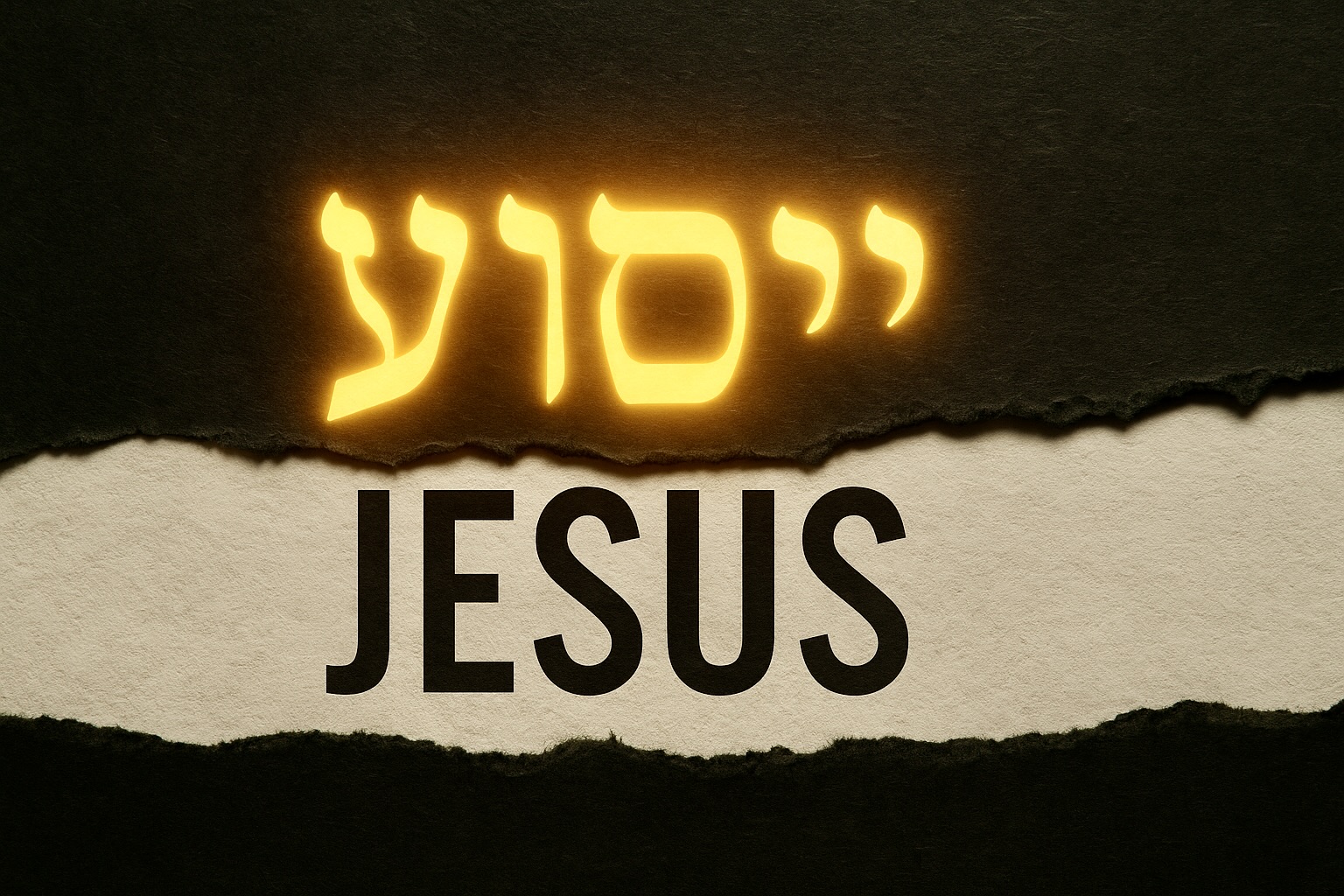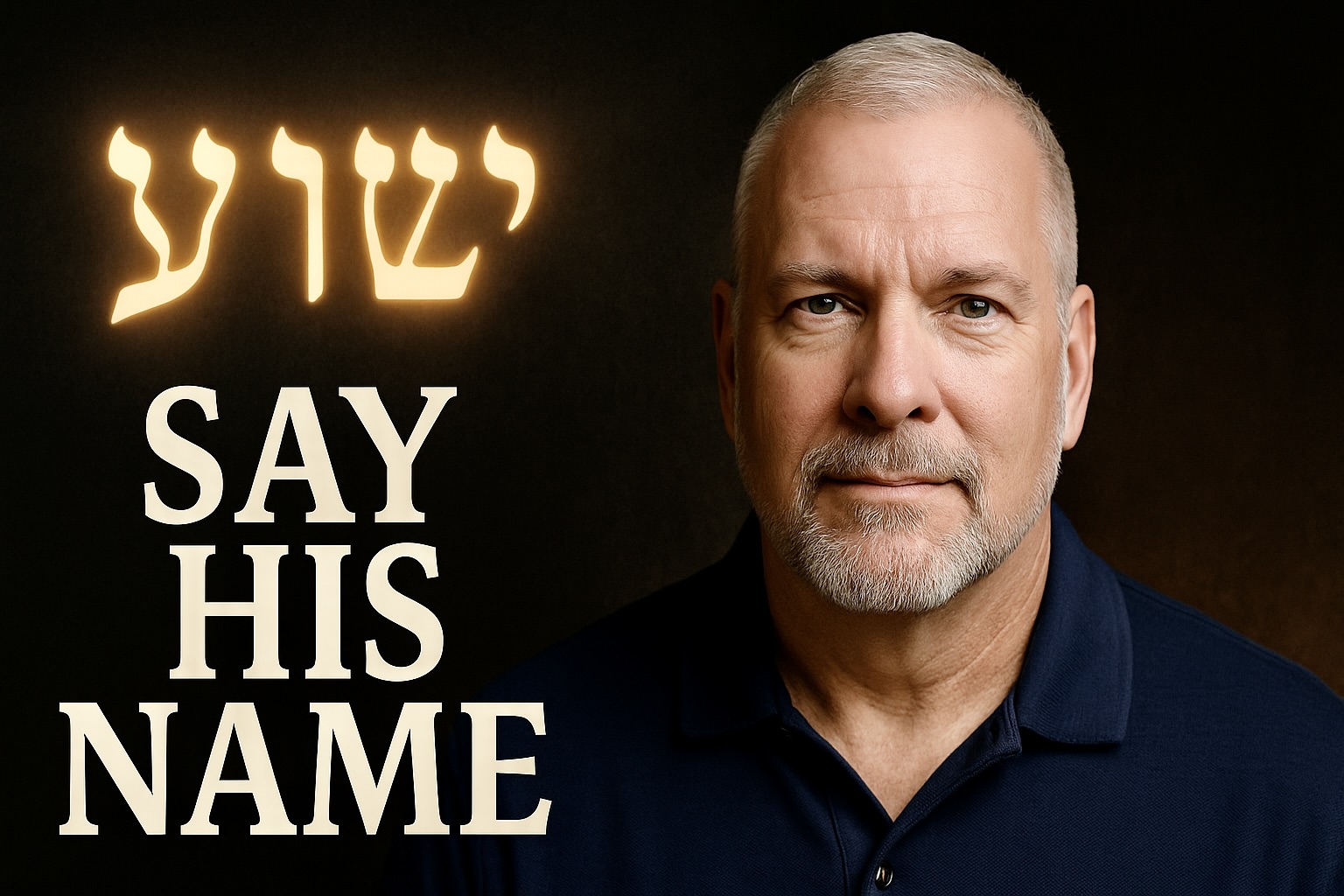What’s in a Name? How Yeshua’s Name—and Others—Were Changed in Your Bible

What’s in a Name? How Yeshua’s Name—and Others—Were Changed in Your Bible
What if the names you’ve read all your life—Jesus, James, Mary, John—were not the names the authors of Scripture actually wrote? What if over centuries, language barriers, politics, and church tradition reshaped those names, distancing us from their true Hebraic meaning and connection to God’s covenant?
🔥 Why I Use Hebrew and Aramaic Wherever Possible:
- ❌ The erasure of Hebrew names and culture was not accidental—it was deliberate, theological colonization.
- 🏛️ Over centuries, political empires and institutional religion suppressed the Hebraic identity of Scripture to control doctrine and distance the faith from its Jewish roots.
- 🆘 The original names—like Yeshua, Yochanan, and Ya’akov—carry meanings and covenantal depth that were lost or distorted in Greco-Roman and Latin translations.
- 🗣️ Hebrew and Aramaic are the languages in which God first revealed His character, His covenants, and His Name.
- 🛡️ Reclaiming these names is not legalism—it’s restoration, honor, and truth-telling in a world built on theological compromise.
- 🕊️ I use the original languages because I am a Follower of the Way—and the Way began in Jerusalem, not Rome, or America.
Today, we uncover the fascinating, and sometimes troubling, journey of how biblical names were changed from Hebrew to Greek, Latin, and finally English—and why rediscovering the original names matters for your walk with Yeshua.
The Power of a Name in Scripture
In the Ancient Near Eastern world, names were more than labels. They carried identity, calling, and divine purpose. In Hebrew, Shem (שֵׁם) means name, but also speaks of character, authority, and reputation (Proverbs 22:1).
When God told Mosheh His name in Exodus 3:14—Ehyeh-Asher-Ehyeh (“I AM WHO I AM”)—He revealed more than a title. He declared His very essence. Likewise, Yeshua’s name (יֵשׁוּעַ) means “Yahweh saves.” Every time you say it, you’re proclaiming God’s salvation plan.
From Hebrew to Greek to Latin to English
The journey of name changes was not deliberate deception, but the result of translation challenges and cultural adaptation:
•Yeshua → Iēsous (Greek) because Greek lacked the “sh” sound.
•Iēsous → Iesus (Latin) for Romanized Scripture.
•Iesus → Jesus (English) centuries later.
Similar changes occurred with many names:
•Ya’akov (יַעֲקֹב) became James, obscuring the fact that both the patriarch Jacob and the apostle James bore the same Hebrew name.
•Miryam (מִרְיָם) became Mary, losing its deeper connection to Israel’s history.
These changes were reinforced by Jerome’s Latin Vulgate, European church politics, and later English translations that anglicized names for familiarity.
❌ What Was Lost
1. Divine References: Many Hebrew names contained Yah or El, linking them directly to God’s covenant name. These links often disappeared in translation.
2. Prophetic Meaning: Names like Yeshua declare what God does—salvation, deliverance, mercy. Latinized forms removed this immediate reminder.
3. Jewish Roots: Over time, Christianity seemed less Hebraic, severing its visible connection to Israel’s Messiah.
✅ Restoring the Names
Restoring Hebrew names is not about legalism or “speaking the right word.” It’s about reconnecting to the original meaning God placed in Scripture. When we say Yeshua, we proclaim, “Yahweh saves.” When we honor Ya’akov, we remember Israel’s covenant story.
Philippians 2:9-10 says:
“Therefore God raised Him to the highest place and gave Him the name above every name; that in honor of the name given Yeshua, every knee will bow — in heaven, on earth and under the earth.” (CJB)
🎯 Challenge and a Choice
I challenge you today: Will you settle for tradition, or will you lean into God’s truth and the names He gave His people? Reclaiming these names is not about being different—it’s about drawing closer to God’s heart and understanding His Word as He first gave it.
Prayer of Salvation
Avinu Malkeinu,
I confess I have sinned. I turn to You in teshuvah (repentance). I believe Yeshua is the promised Messiah, who died for my sins, rose again, and gives me new life. I call upon Your Shem HaKadosh (Holy Name) for salvation.Lead me by Ruach HaKodesh (Your Spirit) and write Your Torah on my heart. In Yeshua’s Name, Amen.
If you prayed this prayer, reach out to me at www.TrueWordFaithforLIFE.com. I will walk with you on your next steps in faith.
Shalom b’Shem Yeshua.
Shawn





